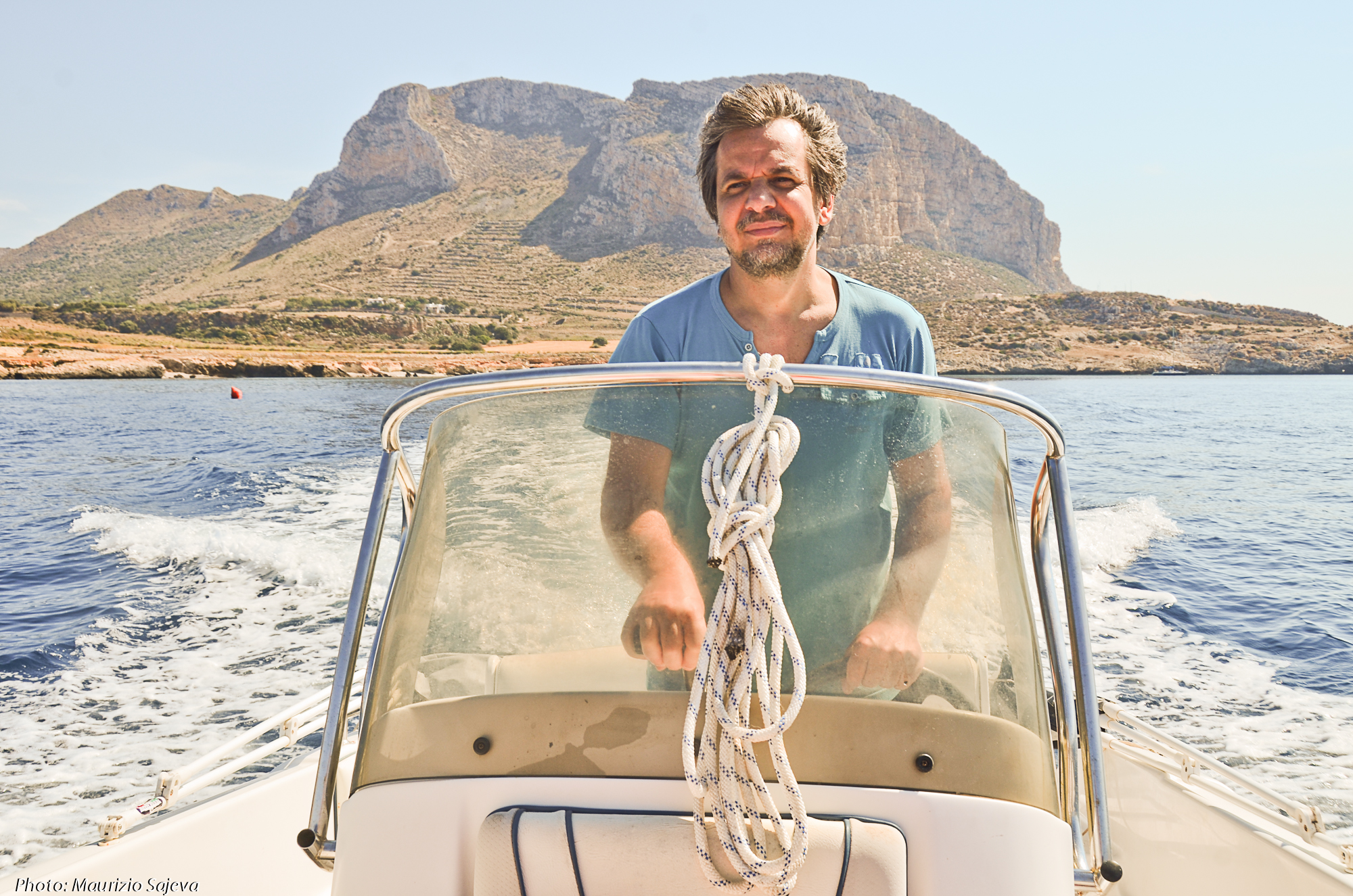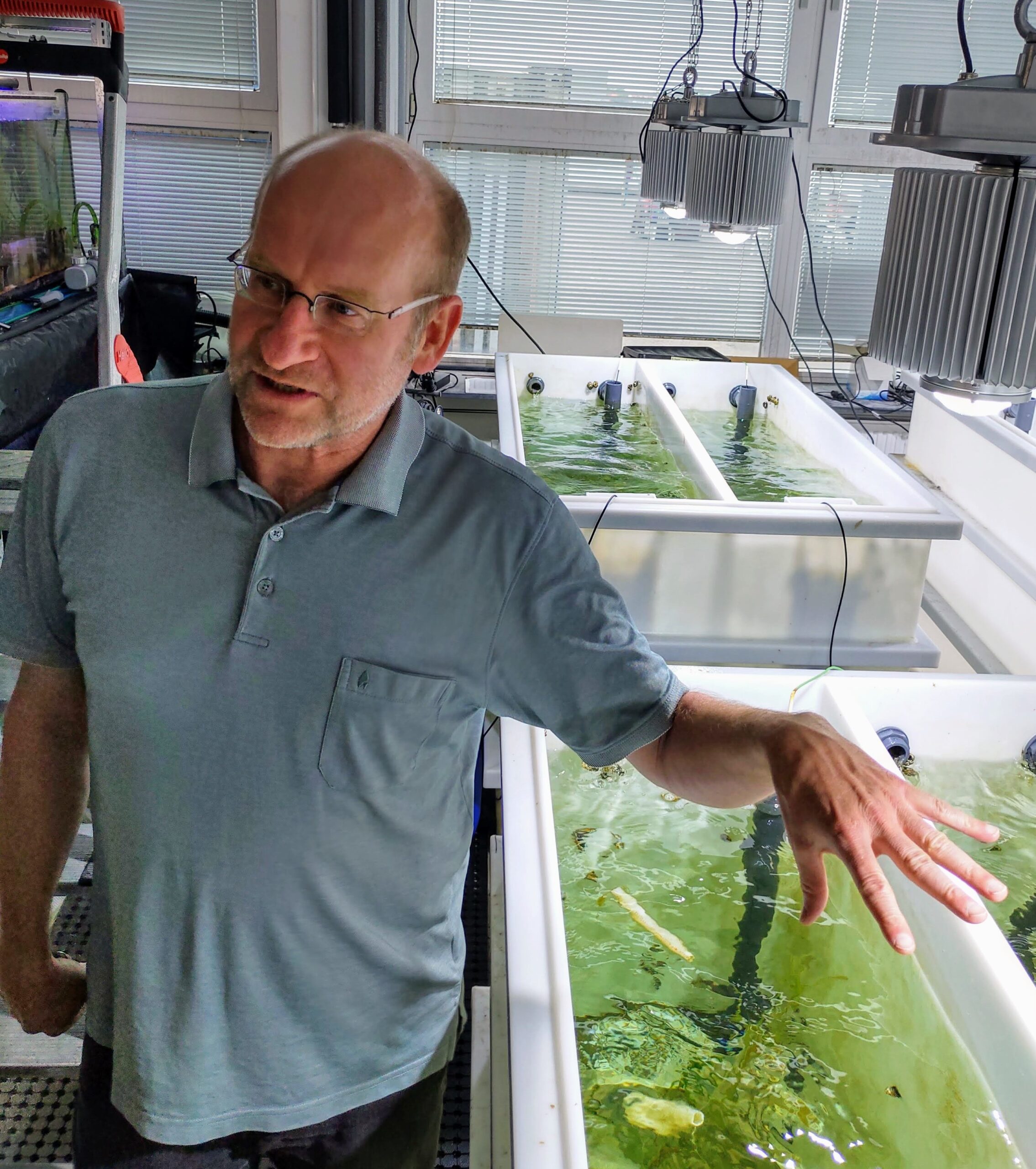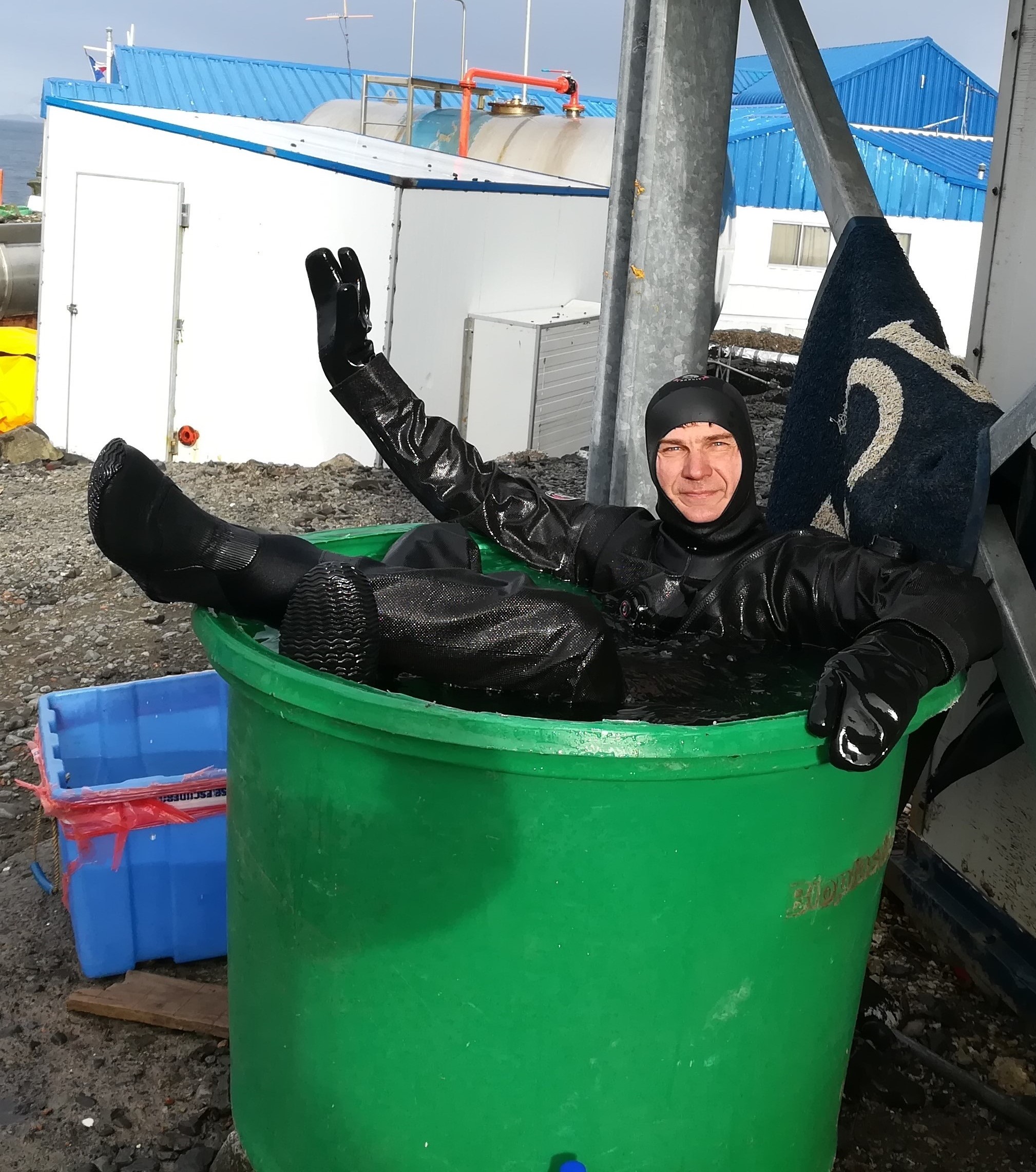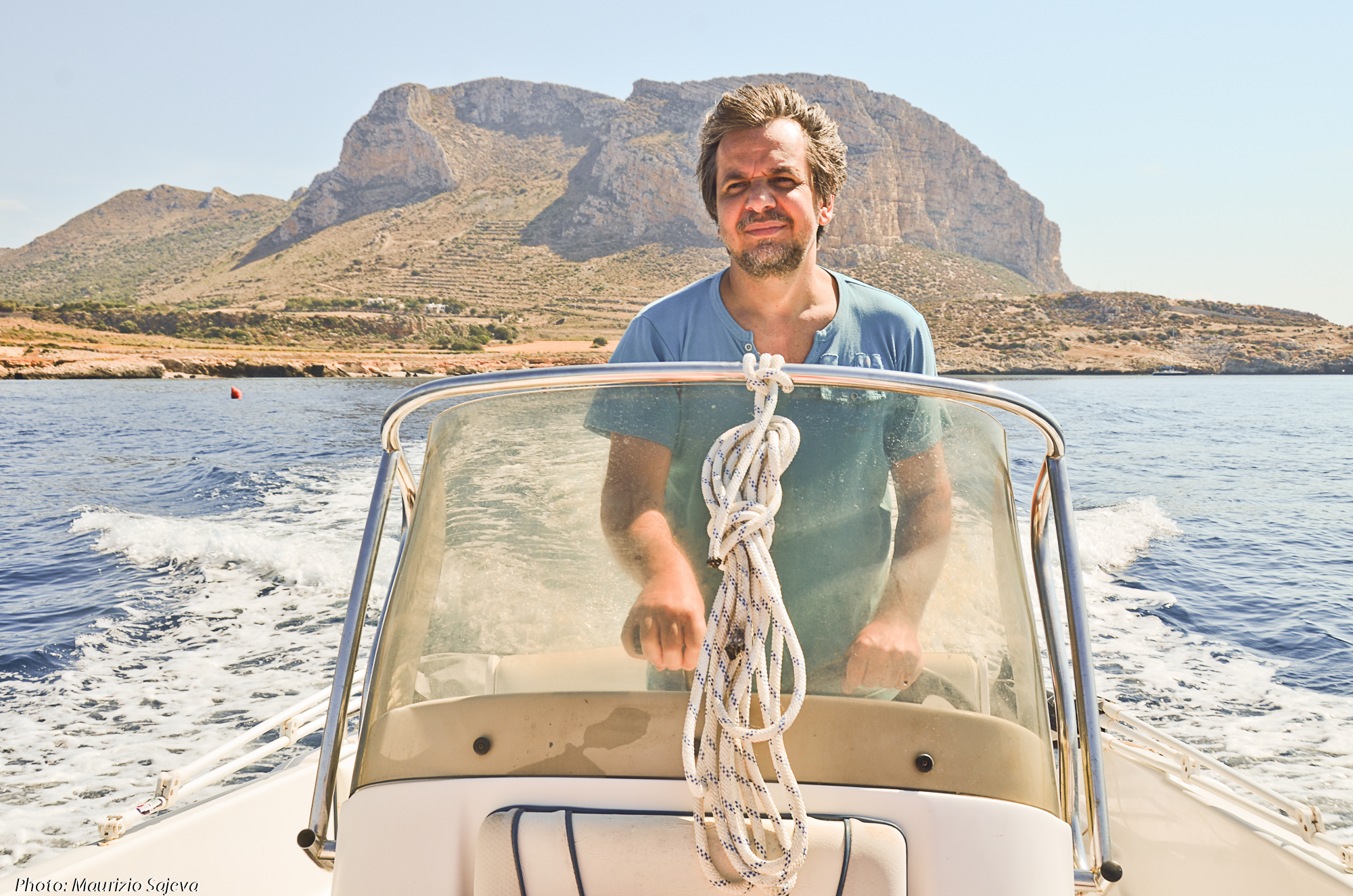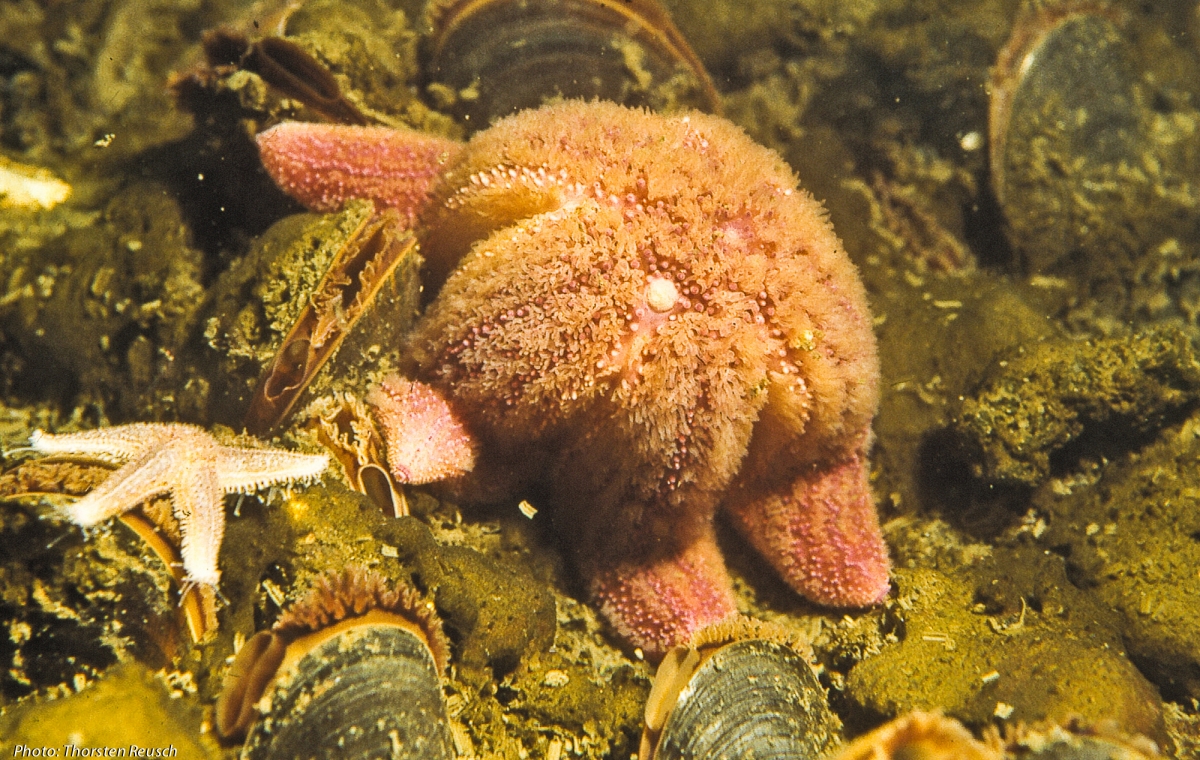
MARES
Know Your Scientist
Introducing the BONUS MARES researchers
Marjo Maidell, PTT
My name is Marjo Maidell and I work as a forest economist at PTT. I’ve worked in different parts of the forest sector during the last 10 years, both in public and private sector. MARES has been an exciting jump to marine sciences and I’ve been involved in reporting, organization of workshops and development and testing of the geo-portal.
What are you currently working on?
My work time is split between several projects, ensuring that my tasks vary, and days are never alike. In MARES, my next tasks involve reporting and drafting a manuscript on the purpose, implementation and further development of the geo-portal.
What drives you in what you do?
In forest sciences I’m most interested in bridging economics and environmental sciences to improve the sustainable management of natural resources. These same topics also apply to marine sciences. Ways to support this are countless of course but currently I’m keen to study more how GIS-based solutions could bring innovative tools for spreading information and balancing the use and conservation of natural resources.
Name one achievement in your career you are most proud of?
Typically, I’m most proud of the work done, either by me or my team, when I see it benefits others and results are taken to use to improve processes in practice. It doesn’t matter whether the improvement takes place in a small-scale company or international politics, as long as I can support the way forward.
Paula Horne, PTT
I am Paula Horne, a Finnish nature-enthusiast, an economist and a research director at Pellervo Economic Research PTT. While typically my free time and work is spent on terrestrial environment and issues, I embrace any change to scuba-dive as my hobby or dive deeper into the academic questions of marine ecosystem services. In MARES I work on the valuation of ecosystem services, learning a lot from the collaboration with our colleagues of natural sciences.
What are you currently working on?
As a research director my time is divided between administrative work and research. In MARES we are now preparing a report of valuation methods and contributing to a manuscript on Baltic Sea ecosystem services. Naturally, I am looking forward to the international MARES workshop in Suomenlinna in mid-February.
What drives you in what you do?
Environmental economics and valuation particularly seemed as a natural choice, given my interest in nature but also in people’s behaviour. Microeconomic choice theory aims at understanding human behaviour with regard to decision making. Better informed decision-making regarding ecosystem services would benefit both nature and the humankind.
Name one achievement in your career you are most proud of?
I participated in the first steps of the Finnish voluntary biodiversity programme METSO, in which I am still involved every now and then. I even have a METSO site in my own land. METSO is a great example of Finnish collaboration and good will, and I am happy and proud that we have it. It shows that voluntary mechanisms can take you a long way in safeguarding ecosystem services.
Melanie Heckwolf, GEOMAR
I am a Postdoc in the Marine Evolutionary Ecology group at GEOMAR (Helmholtz Centre for Ocean Research Kiel) in Germany. Within the MARES project, I am part of the team that conducts a literature survey on the current knowledge on ecosystem services in the Baltic Sea.
What are you currently working on?
In particular, we are interested in finding out which ecosystem services are provided by seagrass meadows, macroalgal forests and mussel beds. Together we scanned 3,089 papers, from which we extracted 20 known ecosystem services that are provided by these target ecosystems.
Our efforts revealed that the knowledge on the species in ecology is plentiful, while the knowledge transfer into socio-economic disciplines and the monetary evaluation of these services is close to non-existent. Researches and policy makers will have to make an effort to close this gap to ultimately promote evidence-based decision-making for sustainable ecosystem management.
What drives you in what you do?
I became part of this project because I am convinced that interdisciplinary approaches like those within the MARES project can help to protect the Baltic Sea ecosystems for a more sustainable future.
Anneliis Peterson, EMI
I’m a Junior Research Fellow in marine biology in the Estonian Marine Institute, University of Tartu. Just a couple of months ago I defended my PhD thesis on benthic habitats, species and species richness distribution mapping. Nowadays I am also involved in other research topics, including ecosystem services, macroalgae cultivation perspectives in the Baltic Sea and cumulative anthropogenic pressures on ecosystems. In BONUS MARES I’m involved in the work package 2 that deals with a meta-analysis of ecosystem services.
What are you currently working on?
In the BONUS MARES project, I performed together with the project colleagues a structured meta-analysis of various scientific studies on ecosystem services provided by macroalgae, seagrass meadows and mussel beds in the Baltic Sea. We registered a huge knowledge gap in the quantification and mapping of most ecosystem services as well as in the applicability of valuation methods. Right now, we are composing a manuscript from the main results of the meta-analysis that will hopefully be published in 2020.
What drives you in what you do?
I have always loved sea and nature, and thereby the decision to choose biology and more precisely marine biology was made quite easily. For me, it is interesting to learn every day something new and to see and study the complex connections between different ecosystem components. I hope that we can manage our marine nature in a sustainable way and all species that are here right now can also be found in the future.
Name one achievement in your career you are most proud of?
As I just defended my PhD a couple of months ago, I would say that this is by now one of my biggest achievements.
Thorsten Reusch
Marine Ecologist and evolutionary biologist, GEOMAR
I am a marine ecologist and evolutionary biologist working as full professor at GEOMAR, the major ocean institute in Germany, located in Kiel at the Baltic Sea shore.
Together with colleagues, I am coordinating Work Package 2 of the MARES project dealing with a “Review of Ecosystem Services”.
What are you currently working on?
I am generally very interested in how global change plays out in the Baltic and how this endangers the many ecosystem services provided by Baltic Sea ecosystems. My favorite system are seagrass beds that have recently come into the focus as possibly very important carbon sinks. Our conceptual framework is that the Baltic Sea allows us a “sneak preview” on other coastal ocean areas since many anthropogenic pressures already have reached a severity that is only predicted for the distant future in other world areas.
Within MARES, along with postdoctoral researcher Melanie Heckwolf, we are performing a meta-analysis of all studies dealing with ecosystem services in the Baltic Sea provided by our target ecosystems; macroalgal beds, seagrass meadows and mussel banks. I can tell you already that we found very few studies that thoroughly evaluated ecosystems services and even fewer trying to quantify particular services, so the knowledge gap is large.
Why did you choose this line of work – what drives you, what interests you, what do you aspire to achieve?
The ocean at our doorstep provides so many open questions that it became one of my research foci. During my career I also find it more and more important to communicate with the public and with stakeholders, and here the questions come from the vicinity of our institute, not from places far away.
Yet at the same time, our results are significant for example for the South China Sea as the pressures such as eutrophication and overfishing are the same, yet the management regime in the Baltic is actually quite advanced and allows for an effective management in a multi-national context, provided that the political will is there. My intention is to provide the scientific basis for fact-based management.
Name one achievement in your career you are most proud of?
One significant contribution to the field was the experimental demonstration that in seagrass beds with zero redundancy at the species level (i.e. the meadows for example in the Baltic are usually mono-specific) genotypic diversity replaces at species biodiversity.
This is significant for conservation, as it provides arguments for protecting genetic diversity. This also unifies biological science, as we have identified common principles as to how diversity, both at the within-species and species level, enhances ecosystem resilience.
Marine biologist Jonne Kotta
Estonian Marine Institute (EMI / UTARTU)
We all carry different roles in our lives. First of all, I am a field marine biologist in my heart but at the same time a father of three lovely kids, traveller, beloved media person, sales manager, accountant – just to name a few.
In the MARES project I develop the overall concept of valuation of ecosystems and disseminate the novel knowledge using sophisticated but easy-to-use online tools.
What are you currently working on?
Some while ago I studied a few groups of organisms, but it took only a few years to understand that to understand what they are and what they are actually doing, you need to study the whole ecosystem in its complexity. Now we try to make this richness of life understandable and appreciable to the general public by introducing different forms of valuation procedures.
Why did you choose this line of work – what drives you, what interests you, what do you aspire to achieve?
I guess that this has to do with curiosity, creativity and willingness to expand horizons that are three important personal qualities of mine. But likewise I learned at a very young age that marine science is a truly unique and cool profession to choose. Namely, I am a second generation marine ecologist. I have far too many ideas and too little time.
If we look around, we have too many societal challenges related to the destruction of marine environment. By linking scientific advances and policy I have a hope to stop some of this destruction and turn problems into possibilities.
Name one achievement in your career you are most proud of?
Building up an experimental research laboratory at the Estonian Marine Institute, and since then enjoying a reasonably stable science career and keeping the laboratory among the best regional scientific centres.
Project Coordinator Maurizio Sajeva, PTT
I am an economist and Doctor in Sustainability and Governance. I am especially experienced in assessment methodologies of systems’ sustainability in different fields, such as energy, food and forestry.
I am the coordinator of BONUS MARES and working in particular on the meta-evaluation of ecosystem services’ evaluation methods as well as on its representation in the geoportal, in cooperation with UTARTU.
What are you currently working on?
I am working on the evaluation and promotion of sustainable innovation in Finland for the achievement of the UN Sustainable Development Goals (SDGs) in a project funded by the Office of the Finnish Prime Minister.
Why did you choose this career – what drives you, what interests you, what do you aspire to achieve?
When I chose to embrace the career of scientist, the first thought was to try to do something useful for society and for the environment. Also, the desire for knowledge generates the adrenaline for continuous discovery and development. I am very interested in all scientific fields, and I believe in the uniqueness of science, as the continuous search for the ‘possible truth’. Unluckily there is only one life available for this. As an economist, my approach is to promote economics as a more objective and hard science, less dependent on political orientations, basing on a concept of use of resources for accomplishing human needs. This systemic approach aims to build equilibrium between human development and environmental sustainability, a process of social learning about development as freedom within systems’ boundaries.
Name one achievement in your career you are most proud of?
I am very proud of the scientific contribution that has been possible through my Doctoral studies and of the developments made through the BONUS MARES project, which I planned and build from the very beginning, also in cooperation with my colleagues. From a personal perspective I am very proud of my achievements which have been the result of my own effort and struggle, with no discounts.
